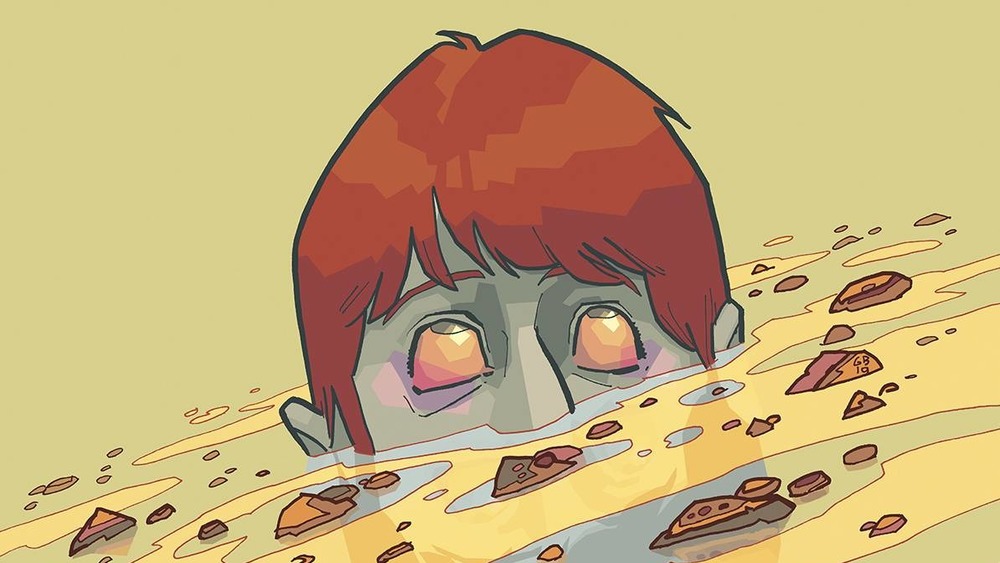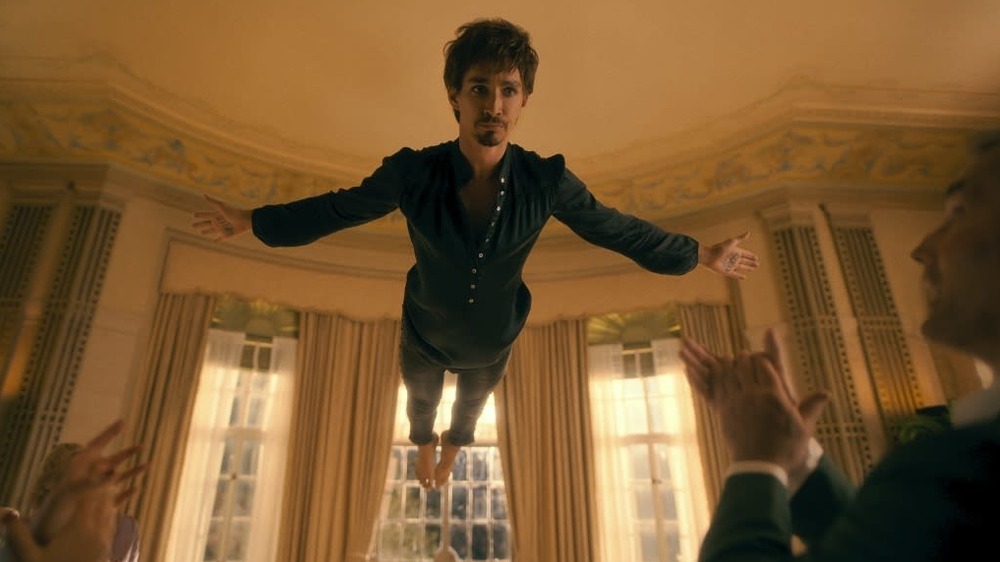The Terrifying Klaus Power We Could See In Netflix's Umbrella Academy
Netflix's adaptation of The Umbrella Academy comics has been wildly successful with audiences since the series first aired in 2019. Its second season, released July 31, 2020, quickly became the streaming platform's most popular original show (until Bridgerton stole the title like a social-climbing debutante looking for a prince).
In a story featuring a dysfunctional but fascinating family with superpowers, who are wrangling time-traveling assassins, an apocalypse (or several), and a mysterious father figure, one character became a quick fan favorite. Klaus Hargreeves (Robert Sheehan) has more than his fair share of troubles — including addiction, PTSD, and literal hauntings — but his personal brand of endearing recklessness has ensured that many fans love Klaus Hargreeves on The Umbrella Academy, and always will.
Like the rest of the Academy, Klaus' powers have evolved over time, and a recent clue from the series' source material may indicate that, as well as summoning the dead for a chat and the occasional possession session, he might soon be able to bring back souvenirs from the great beyond — or worse. This is the terrifying Klaus power we could see on Netflix's Umbrella Academy next.
Klaus can carry over objects from the afterlife ... and maybe more
In the first two seasons of Netflix's Umbrella Academy, Klaus moves on from just being able to talk to the dead to giving them corporeal form — as displayed in the battle at the concert hall. In short, he's no longer simply communicating with the dead; he's bringing part of them back to the world of the living.
Those powers have escalated even more in the comics than they have on the show. In 2019, the creator of The Umbrella Academy comic series, Gerard Way, teamed up with writer Shaun Simon and comic book artist I.N.J. Culbard to create a spin-off series entitled Tales from the Umbrella Academy. In 2020, they launched the first volume: a miniseries all about what 18-year-old Klaus got up to after being kicked out of the Academy by Reginald Hargreeves. The series also introduces a new superpower: Klaus can bring back physical objects from the afterlife (via CBR).
This fits nicely with Klaus' kleptomaniac tendencies, and it starts innocently enough with a hat. In the comics, a woman who has been "borrowing" Klaus' abilities accidentally turns herself into a huge spider, and proceeds to kill a bunch of people. This begs the question: Is Klaus accidentally bringing back spirits with their own evil plans and abilities?
The Netflix show is very different from the comics
Before we start picturing a giant spider monster roaming around the Academy, it's worth noting that Netflix's Klaus is different from the comic character.
In the comics, Klaus can levitate, fly, and use telekinesis — although his abilities are limited if he's wearing shoes. (If you've read into the "Paul is dead" Beatles conspiracy, you may already know that, as British network ITV explains, "not wearing any shoes [is] a sign in some cultures of being ready to be buried.") In the first Umbrella Academy volume, The Apocalypse Suite, on which season 1 of the Netflix show is loosely based, Klaus is the one who both subdues Vanya (with a ghostly orchestra) and stops chunks of the Moon from colliding with the Earth.
His onscreen powers haven't quite lived up to his comic ones yet. In Battle Dallas — the behind-the-scenes name for the season 2 fight against the Soviets — the family (other than Five) all have heightened powers. Klaus conjures an army of ghostly soldiers, but he doesn't levitate. There is a cheeky reference to this ability later in the season, when he has an invisible-to-everyone-else Ben (Justin H. Min) hold him up, so it looks like he's floating. But he can't actually do it. Yet.
Netflix's Klaus has a ways to go to catch up with comics Klaus. It would be interesting to see what he would do with the opportunity to smuggle the possessions of the dead — and even the dead themselves — to the other side, but the series has always done its own thing, and to great effect, so don't bet on it.


